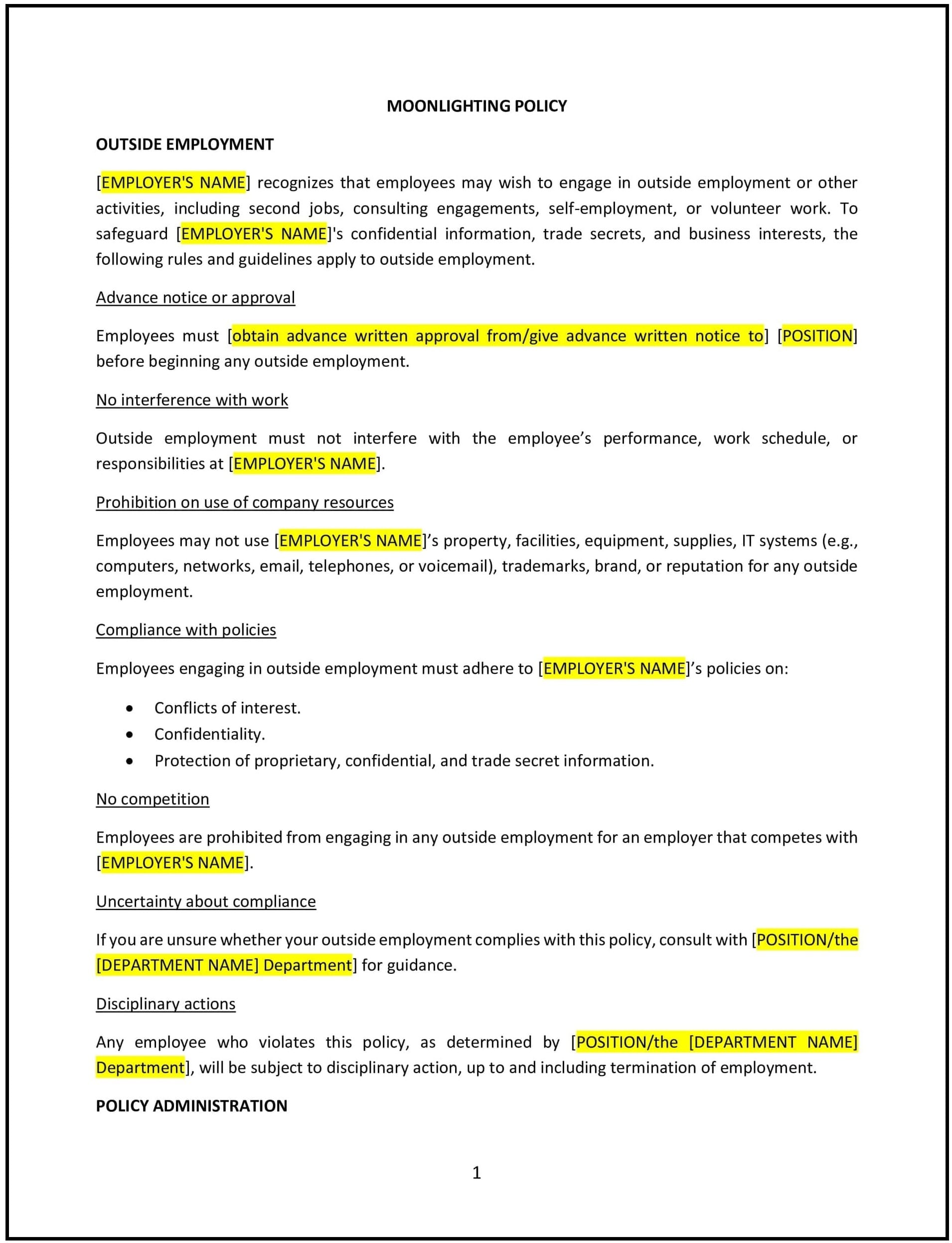Got contracts to review? While you're here for policies, let Cobrief make contract review effortless—start your free review now.

Customize this template for free
Moonlighting policy (North Dakota)
This moonlighting policy is designed to help North Dakota businesses establish guidelines for employees who seek secondary employment outside their primary job. The policy outlines restrictions, disclosure requirements, and potential conflicts of interest.
By implementing this policy, businesses can protect company interests, ensure employee performance, and manage conflicts effectively.
How to use this moonlighting policy (North Dakota)
- Define moonlighting restrictions: Specify conditions under which secondary employment is permitted.
- Establish disclosure requirements: Require employees to report secondary jobs that may pose a conflict.
- Address performance expectations: Ensure external work does not interfere with primary job duties.
- Prohibit conflicts of interest: Prevent employees from working for competitors or engaging in competing business activities.
- Clarify use of company resources: Restrict employees from using company time or assets for external work.
- Set disciplinary actions: Outline consequences for violating the policy.
- Review regularly: Update the policy based on workplace needs and evolving business interests.
Benefits of using this moonlighting policy (North Dakota)
Implementing this policy provides several advantages for North Dakota businesses:
- Protects company interests: Prevents conflicts of interest with competitors or vendors.
- Maintains employee productivity: Ensures outside work does not impact primary job performance.
- Enhances transparency: Encourages employees to disclose secondary jobs that may pose concerns.
- Reduces legal risks: Helps businesses manage contractual and confidentiality obligations.
- Reflects North Dakota-specific considerations: Addresses workforce trends and industry-related concerns.
Tips for using this moonlighting policy (North Dakota)
- Clearly define which types of external employment are restricted.
- Require employees to seek approval for secondary jobs in relevant cases.
- Monitor employee workload to ensure performance remains unaffected.
- Provide guidance on managing conflicts of interest transparently.
- Adjust as needed: Modify the policy based on emerging workplace challenges.